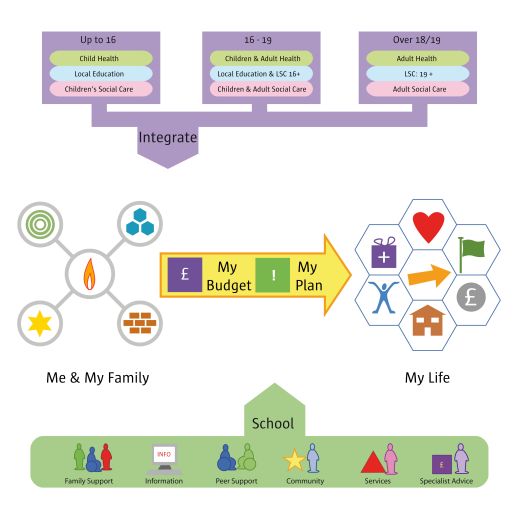Personalised Transition is a system for enabling young people with complex needs to leave school and to achieve active citizenship within their communities.
Author: Simon Duffy
Personalised Transition is a system for enabling young people with complex needs to leave school and to achieve active citizenship within their communities. It works by shifting control to families while providing more effective support from school and other professionals.

Personalised Transition was developed at Talbot School in Sheffield in 2006 as part of a collaboration between the school, Sheffield City Council, NHS Sheffield and the Learning and Skills Council. The model began to be used in 2007 and it is now being further developed and extended for use across the Yorkshire & Humberside region. The model draws heavily upon the experience of using person-centred planning and similar techniques to give more control to young people and their families and the value of focusing on citizenship as a core element of the curriculum. It also powerfully demonstrates the possibility of using self-directed support to bridge the gaps between children and adult services and the to pool resources from education, health care and social care. The model is fully described in Personalised Transition by Alison Cowen.
The four key elements within the model are:
The publisher is the Centre for Welfare Reform.
Personalised Transition © Simon Duffy 2010.
All Rights Reserved. No part of this paper may be reproduced in any form without permission from the publisher except for the quotation of brief passages in reviews.
health & healthcare, intellectual disabilities, social care, England, Inspiration